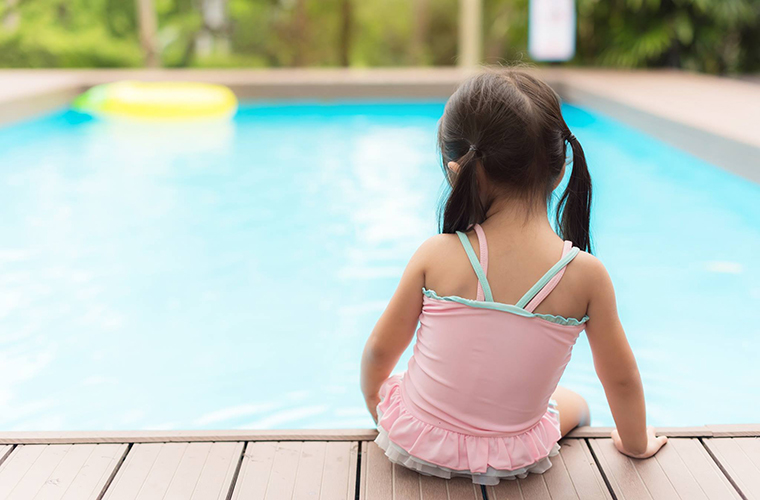How to keep Children Safe While Social Distancing

With most schools and childcare facilities closed and families practicing social distancing from the safety of their home, experts warn that we may see a rise in injuries involving children.
Michelle Sterling, wellness and safety specialist at BayCare’s St. Joseph’s Children’s Hospital, offers some safety tips families can follow at home as they adapt to new routines.
Supervise your children whenever they are in or around water
- Actively supervise while children are playing in or near water. Children can drown quickly and silently—in as little as one inch of water and in a matter of seconds.
- Never leave young children unattended in bathtubs, even for a moment.
- Never rely on a personal flotation device (arm band swimmies, water wings, rafts, etc.) to protect them.
- Keep rescue equipment and a telephone poolside.
- Remove pool toys from the water after swimming. Young children attracted to the toys can fall inside the pool when reaching for them.
“We have fantastic weather in Florida and swimming is a great way for children to get some exercise, but it’s important for families to take extra steps to keep kids safe whenever they are in or near water,” said Sterling.
Never leave children unattended in a vehicle for any amount of time
- The inside temperature of a vehicle can heat up to 19 degrees in as little as 10 minutes, even with a window slightly opened.
- Teach children not to play inside, on or around vehicles.
- Always lock your vehicle’s doors and trunk and keep keys out of children’s reach.
Store items safely to prevent poisoning
- As you are purchasing extra supplies to keep your home clean, sanitized or stocked up on medicine, make sure you keep them put up, out of sight, and out of reach from children to prevent accidental poisoning.
- Keep all household cleaning products in their original containers.
- If you suspect your child has ingested something harmful, call the Poison Control Hotline at 1-800-222-1222.
Don’t forget the bike helmets
Outdoor activities like riding bikes is a great way for children to exercise and also provides a mental break from their online school requirements. Whether they ride a bike, skateboard or scooter, make sure that whenever they “wheel” around, they’re wearing a properly fitted helmet.
- Eyes: Position the helmet on your children’s head. Have them look up, and ensure they see the bottom rim of the helmet.
- Ears: Make sure the straps of the helmet form a “V” under your children’s ears when buckled.
- Mouth: Have your children open their mouth wide. Make sure the helmet hugs their head. If not, tighten the straps!
Sterling notes that kids are sometimes reluctant to wear helmets. They may insist they’re good riders who don’t need helmets, complain that they’re uncomfortable or point out that none of their friends wear them.
“Requiring children to wear helmets every time, everywhere they go, is the best thing you can do to protect them,” said Sterling.
Separate toys by age
In any room of the house, toys can become dangerous if misused or if they fall into the hands of children who are too young to play with them. Toys with small removable parts, which could pose a choking hazard to young children, are a definite no-no for toddlers.
“You will want to pay attention to puzzle pieces, small button batteries and small game pieces that could be laying around to ensure that younger children are not putting them in their mouths,” said Sterling.
